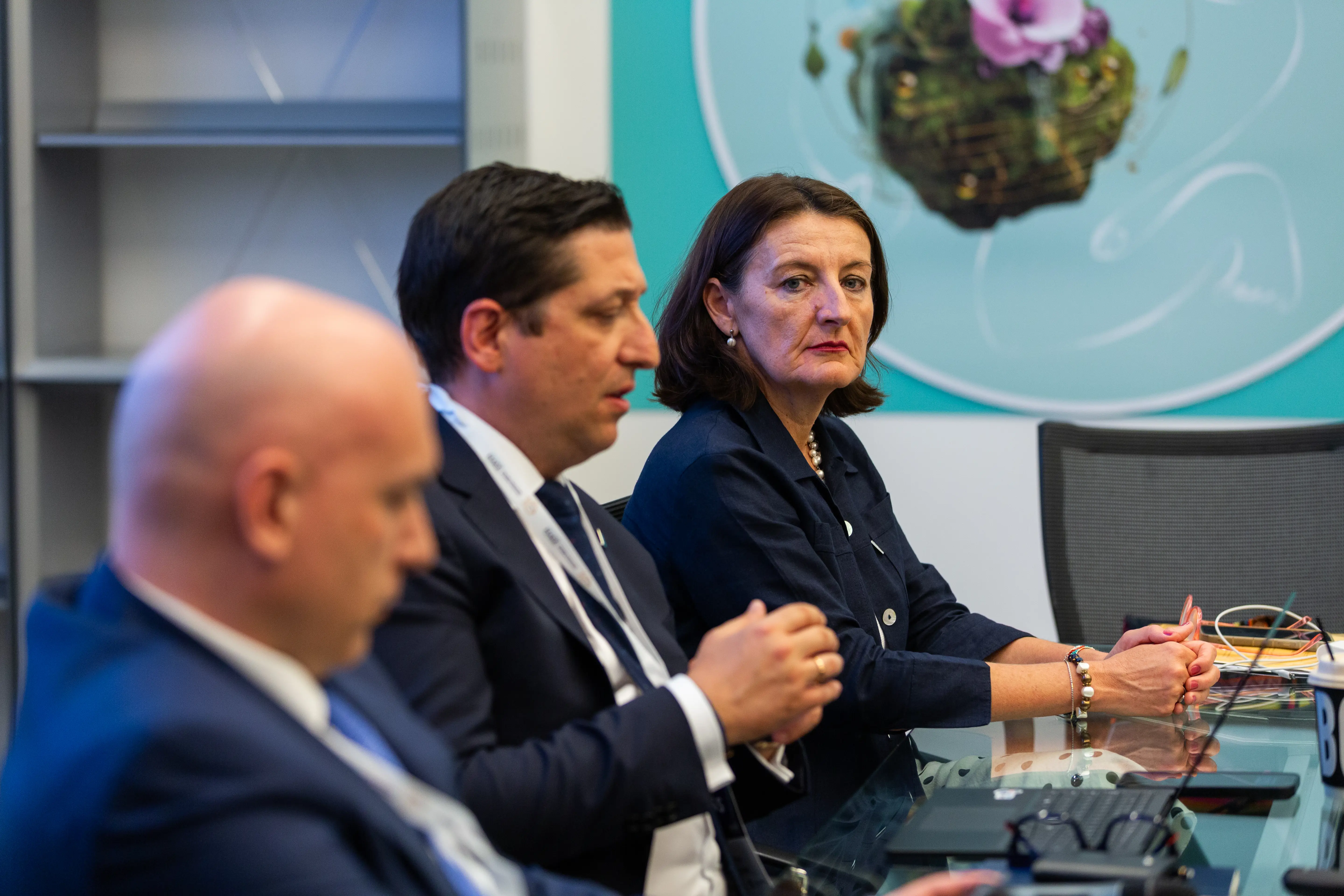
Newsroom / Center News
Working Roundtable Discussion: “Global Gas Supply Chain”
The HELLENiQ ENERGY Center for Sustainability and Energy @ Alba Graduate Business School, in collaboration with the Global Gas Center, hosted a roundtable on the “Global Gas Supply Chain” on Thursday June 4th, 2025, during the 10th HAEE Energy Transition Symposium. The event covered a wide range of topics, including global gas market disruptions, infrastructure resilience, LNG in maritime fueling, regulatory challenges, and the rise of alternative fuels like ammonia and biofuels. Experts emphasized the need for holistic planning, technological pragmatism, and cross-sector collaboration.
2025 – As Europe navigates the complexities of the energy transition, industry experts are urging a shift toward informed decision-making and pragmatic technological deployment. Natural gas and biofuels are seen as key enablers in securing both sustainability and energy security. The need of aligning investment, regulation, and innovation with a unified, realistic vision that balances decarbonization goals with practical implementation is greater than ever.
A key takeaway was the urgent need for balanced policymaking. While technology continues to advance, adoption is lagging behind. Future energy strategies must be rational, goal-oriented, and investment-friendly. The roundtable served as a platform for knowledge sharing and fostering collaboration across the energy sector.
Natural gas remains a vital part of Europe’s energy security strategy, especially amid post-Ukraine geopolitical realignments. The market has shifted toward short-term contracts, and LNG infrastructure upgrades are reshaping regional dynamics. Greece, in particular, has evolved into a key LNG hub, transitioning from an importer in 2019 to a transit node for gas flows to Bulgaria.
Despite its critical role, natural gas is often overlooked in today’s energy discourse. Yet, gas-fired capacity is indispensable as it complements variable renewable energy. As the cleanest fossil fuel currently available, natural gas and LNG serve as effective transition fuels until long-duration energy storage technologies become viable.
The energy transition cannot ignore construction timelines, technical limitations, or affordability. Digitalization is transforming the gas sector, with AI-based predictive analytics enhancing supply chain optimization. However, this digital shift also introduces cybersecurity vulnerabilities that require urgent attention.
Maritime transportation plays a central role in the transition, especially through the use of LNG as a lower-emission shipping fuel. While LNG offers short-term emissions reductions, its long-term viability depends on managing carbon intensity and methane leakage. Coordinated EU-level policies are needed to integrate maritime emissions targets into National Energy and Climate Plans (NECPs).
Shipping remains underrepresented in energy transition planning, despite its vital role in transporting goods, oil, and LNG. EU regulations such as FuelEU Maritime and AFIR (Alternative Fuels Infrastructure Regulation) aim to decarbonize the sector, though LNG-fueled ships may fall short of future compliance standards. Greece is well-positioned to support maritime energy innovation, including LNG de-bunkering and onboard carbon capture systems.
While green hydrogen is central to the EU's long-term decarbonization plans, concerns persist regarding its high capital costs and technological immaturity. Electrification and renewable deployment must precede large-scale hydrogen adoption. Technology maturity is key for identifying viable solutions. The lack of clarity on end-use and insufficient infrastructure hinder hydrogen progress in the EU. Unlike India’s more targeted deployment, Europe's top-down approach lacks market demand signals. Uncertainties also remain about the technical and financial feasibility of repurposing methane pipelines for hydrogen transport.
Biofuels and other alternative fuels that meet EU performance benchmarks without breaching cost or penalty thresholds will play a significant role in the energy transition. Their scalability and regulatory alignment make them vital components of a pragmatic decarbonization strategy.






